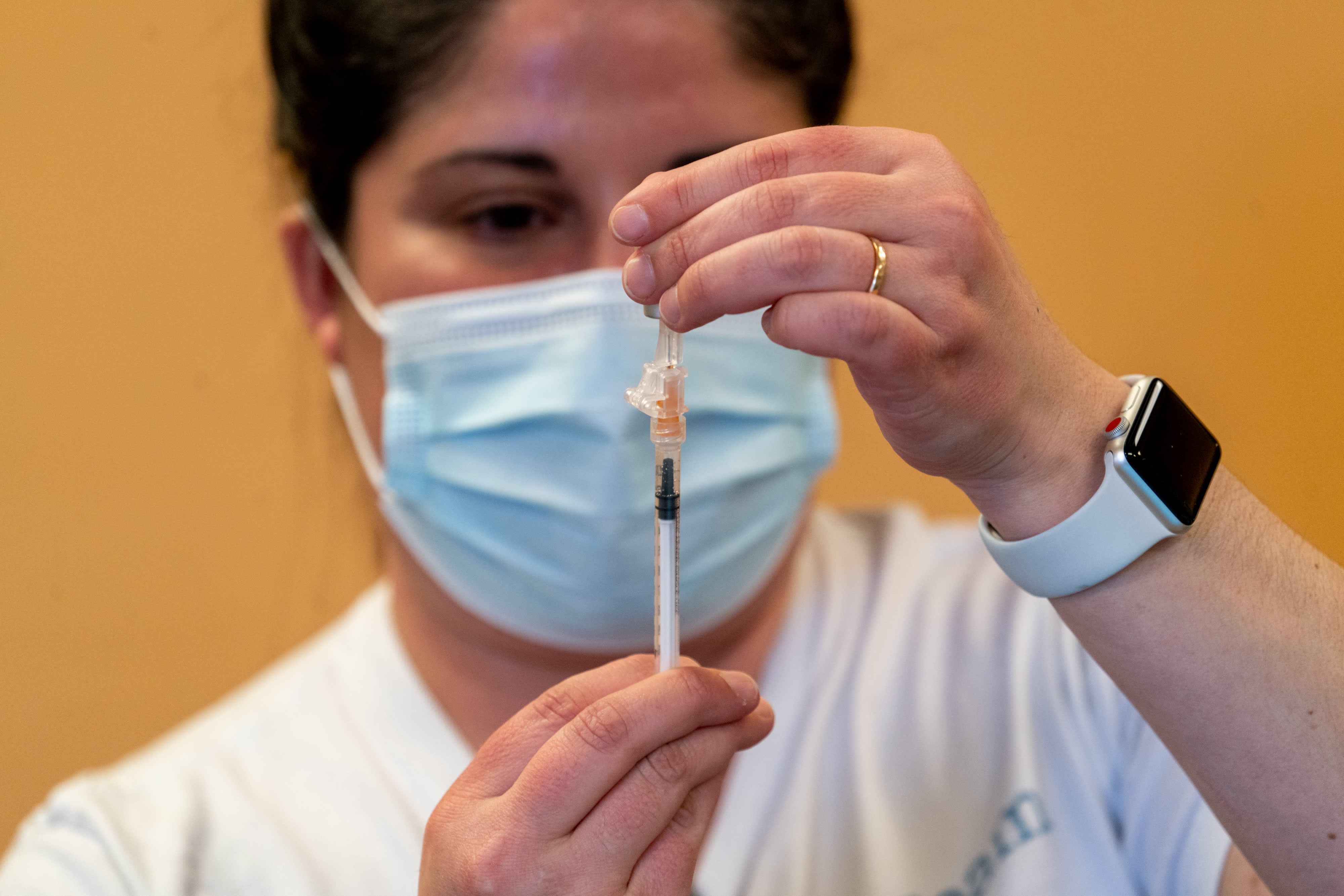The White House on Tuesday warned that the U.S. won’t have enough booster shots and life-saving Covid treatments for Americans if Congress fails to pass $22.5 billion in additional pandemic funding.
Senior Biden administration officials, in a call with reporters, said the U.S. could face another wave of Covid infection in the coming months, even as new cases and hospitalizations have dramatically declined from the peak of the unprecedented omicron surge in January. Infections are already on the rise again in major European nations, such as the U.K. and Germany. China is battling its worst outbreak since 2020.
The officials warned that the funding is urgently needed to get ahead of another Covid wave. House Democrats last week stripped $15 billion in Covid funding, which was already less than Biden requested, from a broader spending bill after failing to reach a bipartisan agreement with Republicans. The GOP has insisted that Congress offset new Covid money by cutting funds for state and local governments allocated for the spring, a demand many Democrats were unwilling to accept.
The senior administration officials told reporters the federal government will not be able to purchase enough boosters shots, vaccines that target specific variants or more antiviral pills beyond the 20 million already under order from Pfizer if more funding isn’t approved.
There is also no more funding for additional monoclonal antibody treatments, including an order planned for March 25, the officials said. If more funding doesn’t come through, the federal government will have to cut state allocations of monoclonal antibodies by more than 30% starting next week, they said.
The federal government will also not be able to maintain sufficient Covid testing capacity beyond June in the event of another Covid surge, the officials said. During the omicron wave, there was a run on at-home tests and in-person clinics, resulting in hours-long lines and empty pharmacy shelves.
Uninsured people will also no longer have coverage for Covid testing and treatments, according to the White House. The fund that covers them will stop accepting new claims a week from now, forcing health-care providers to either absorb the costs or turn patients away, the officials said. The fund will completely end in early April and the uninsured will no longer have coverage for vaccinations, they said.
Some investments made in surveillance of new Covid variants will also have to be wound down, the officials said, leaving the U.S. without the capabilities it needs to stay on top of how the virus is evolving. The emergence of the highly mutated omicron variant blindsided the U.S. and much of the world in November.
The White House said the money is also needed to fund the development of a vaccine that covers a range of Covid variants, and support the administration’s efforts to help increase the vaccination rate in developing nations, increasing the risk that new variants could emerge. Omicron emerged in South Africa and Botswana, and the delta variant was first identified in India.
— CNBC’s Ylan Mui contributed to this report.
